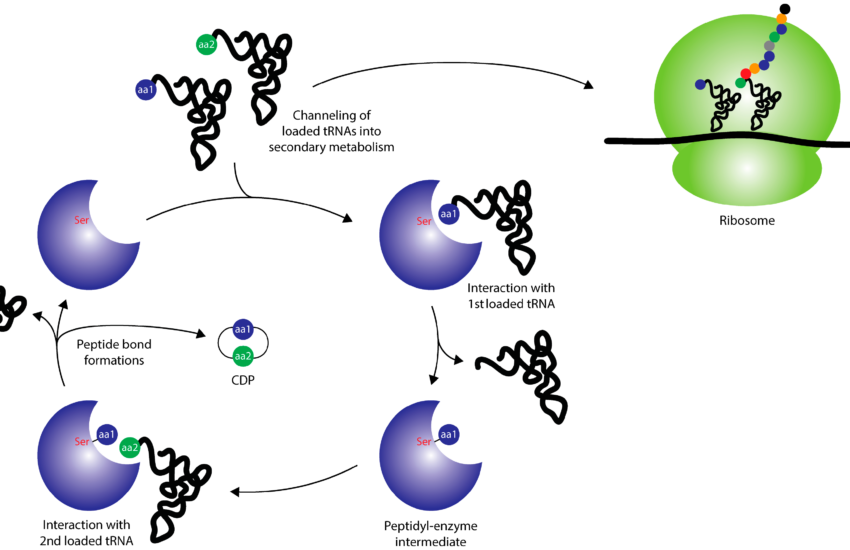Gießenpeptid Relaxation: Understanding Its Mechanism and Applications
What is Gießenpeptid Relaxation?
**Gießenpeptid relaxation** refers to a unique peptide relaxant that influences various biological processes. Peptides, which are linked sequences of amino acids, play vital roles in cellular communication and physiological responses. Gießenpeptid interacts with specific receptors, modulating signals that lead to relaxation in different systems, such as muscle tissues and vascular smooth muscles. Through this mechanism, Gießenpeptid helps regulate important functions, including blood vessel dilation and muscle relaxation, making it significant in therapeutic applications.
Mechanism of Action
The mechanism behind **Gießenpeptid relaxation** involves several biochemical pathways. When the peptide binds to its target receptors, it activates associated signaling cascades. One fundamental aspect is the activation of cyclic AMP (cAMP) pathways, which play a crucial role in muscle relaxation. Increased cAMP levels lead to the phosphorylation of various proteins that contribute to muscle fiber relaxation. Moreover, Gießenpeptid has been observed to affect calcium channels, facilitating smoother muscle contraction and, ultimately, relaxation.
Biological Significance
Understanding Gießenpeptid’s role extends beyond mere relaxation; it is vital in many physiological processes. For instance, during stress, the body requires quick responses to alleviate tension. Gießenpeptid serves as a natural mechanism to counteract vasoconstriction, ensuring adequate blood flow and reduced blood pressure. Studies also suggest a link between Gießenpeptid activity and mood regulation, potentially aiding conditions related to anxiety. These insights illustrate the peptide’s importance not just in relaxation but in overall health maintenance.

Applications of Gießenpeptid Relaxation
The clinical applications of Gießenpeptid are becoming increasingly apparent, especially in fields dealing with muscle and vascular health. One primary focus is the treatment of hypertension. The capacity of Gießenpeptid to induce **relaxation** in vascular smooth muscle cells allows for significant lowering of blood pressure. This property positions it as a potential therapeutic agent in managing cardiovascular diseases.
Therapeutic Uses in Cardiology
In cardiology, Gießenpeptid shows promise as a novel agent in post-myocardial infarction care. During heart recovery, the heart muscles require a balance between relaxed and contracted states to function effectively and deliver oxygen-rich blood through circulation. By leveraging Gießenpeptid related pathways, physicians could offer new treatment strategies to promote heart relaxation and recovery without extensive dependency on traditional medicines.
Potential in Mental Health
Interestingly, **Gießenpeptid relaxation** is being explored for its implications in mental health. The biological pathways it influences can potentially impact anxiety levels. By promoting relaxation physiologically, Gießenpeptid may also alleviate psychological stress responses. Future research could unlock new treatments for anxiety and depression, targeting these responses with focused peptide therapy. This trajectory emphasizes the need for integrated approaches to health that encompass both physical and mental well-being.

Challenges and Future Directions
Despite the promise that **Gießenpeptid relaxation** holds, various scientific and practical challenges remain. One significant hurdle is the delivery method of peptide therapies. Peptides are often susceptible to degradation, limiting their effectiveness when introduced into the body. Researchers are investigating advanced delivery systems, such as nanotechnology, to protect and optimize peptide administration, offering enhanced bioavailability.
Regulatory Pathways
The path to clinical approval for Gießenpeptid-based therapies also faces regulatory challenges due to stringent guidelines governing peptide therapeutics. Trials must ensure not just efficacy but also safety over prolonged use. Comprehensive studies aimed at determining findings from exploratory research to larger clinical trials are essential. The establishment of rigorous frameworks will ensure that Gießenpeptid relaxation therapies meet the necessary safety profiles for various applications.
The Future of Gießenpeptid Research
As the understanding of **Gießenpeptid relaxation** expands, interdisciplinary research focusing on its implications across various health domains could yield innovative treatments. Collaborative efforts between molecular biologists, pharmacologists, and mental health professionals will enable a holistic approach towards leveraging peptide therapy. Future studies should also focus on understanding the nuances of Gießenpeptid interactions with other cellular systems, to build a comprehensive understanding of its multi-faceted role within the body.
Key Takeaways
- Gießenpeptid plays a critical role in facilitating relaxation in physiological systems through specific pathways.
- Its therapeutic applications in areas like cardiology and mental health are rapidly growing, paving the way for innovative treatments.
- Ongoing research is essential to overcome delivery, safety, and efficacy challenges associated with peptide therapies.
- Future directions include emphasizing interdisciplinary research to enhance the understanding and application of Gießenpeptid.
FAQ
1. How does Gießenpeptid interact with smooth muscles?
Gießenpeptid relaxes smooth muscles by activating biochemical pathways that increase levels of cAMP. This reaction leads to the phosphorylation of proteins involved in muscle contraction, resulting in enhanced muscle relaxation and promoting better blood flow.
2. What are the potential mental health benefits of Gießenpeptid relaxation?
Research suggests that the mechanisms behind Gießenpeptid may positively impact anxiety levels due to its calming effects on the vascular and muscular systems. It may serve as a potential therapeutic agent in reducing physiological responses that contribute to anxiety.
3. Are there any known side effects of Gießenpeptid therapies?
While research is ongoing, peptide therapies, including those utilizing Gießenpeptid, can face issues related to degradation and efficacy. Possible side effects may depend on how they are delivered and individual patient responses, necessitating further clinical trials for definitive answers.
4. What research is currently being conducted on Gießenpeptid?
Current studies are exploring Gießenpeptid’s roles in cardiovascular health, its effects on mental health, optimized delivery methods for peptide therapies, and the impact of Gießenpeptid on various cellular pathways within the human body.
5. How can Gießenpeptid relaxation improve heart health post-myocardial infarction?
Gießenpeptid’s mechanisms that promote relaxation can help manage tension in the heart post-heart attack, allowing for better oxygen delivery and efficient pumping of blood. It represents a potential therapeutic avenue for supporting cardiac recovery.
